
RuPaul’s Drag Race has brought drag entertainment into the mainstream and has given rise to some amazing drag artists. But how has the show changed drag over the years?
We recently interviewed Latrice Royale and Mimi Imfurst, two RuPaul’s Drag Race alum, about this interesting topic and to learn what impact they think the show has had on drag. Separately, we sat down with drag legend Miss Coco Peru who shared her thoughts on the topic as well. Read below to find out how these three hard-working queens feel about how this game-changing show has shaped drag over the last decade.
Latrice Royale shares her thoughts on how Drag Race has made drag more fashionable in the gay community:
I think the influence that Drag Race has had on our culture and our art form has been amazing. We have evolved and been shown that there’s more than just one note to drag. There’s many facets of drag. There’s all different kinds and types and shapes and sizes. It’s amazing that now the world is exploring it and seeing what we’re all doing.
It is now fashionable to become a drag queen. Everybody is trying to become a drag queen, which is great, but at the same time it does have some negative effects where people do feel entitled and feel like they have what it takes to be a superstar. The fact of the matter is that there is more to drag than just a pretty face and makeup and hair. You have to have entertainment value. You have to be witty and funny. The new generation takes this for granted and doesn’t know enough about drag. They need to go back and watch old films and learn what it is to read and be read. You have to live a little, darling.
Side note: If you love Latrice Royale as much as we do, watch her amazing new music video “Here’s to Life,” which premiered today!
How about we take this to the next level?
Our newsletter is like a refreshing cocktail (or mocktail) of LGBTQ+ entertainment and pop culture, served up with a side of eye-candy.
Mimi Imfurst reveals what it was like before Drag Race made drag a global phenomenon:
I started doing drag professionally, full-time, back in 2001 or 2002 when I moved to New York. Someone offered me a gig and that turned into two gigs and then three gigs. It was such a different time, you know? Back then there was no Drag Race, so that was never even a goal. There was no consequence to what we were doing. There was never pressure to be for anything, because the biggest thing you could hope for was to get a job working at Barracuda. That was the goal in New York City. That was the number one drag bar at the time. On Mondays it was Candis Cayne, Tuesdays was Shasta Cola, Thursdays was Shequida and Sundays was Sherry Vine. That was your goal. You wanted to be a Barracuda girl and that was it.
Coco Peru talks about how Drag Race and the internet have changed the game for drag entertainers:
Back when I started drag, I used to go out every night and have to hand out postcards. I made a stencil and would spray paint on the sidewalks in New York City – not realizing it was illegal. Well… maybe I did on some level, because I did it in dark clothes at two in the morning… I spraypainted all over the city “Miss Coco Peru. She knows.” People would look at that and think, “Who the hell is Miss Coco Peru and what does she know?” But it created a buzz. You had to do that back then because there was no internet.
The other thing you had to do was you had to work your ass off to create something special that people were gonna love so that you could get a review in the paper and word of mouth. So it’s different nowadays.
Nowadays, you have the internet – which if fabulous – you can create your own YouTube channel, and then you have RuPaul’s Drag Race if you’re lucky enough to get on that show. That really just puts you on a whole ‘nother stratosphere.
I’m friends with a lot of contestants of the show, and I tell a lot of the young queens that by all means they should go on the show and take advantage of it. But I would also add that they should really work hard… This is my point: I get a lot of young queens asking me, “How do I become famous?” That’s not the real goal. Maybe it is for some, but that was never the goal for me. The goal for me was to be able to entertain, be in the arts, to surround myself with other artists and get inspired. I feel that for the girls who want to be in it long term, they have to figure out why they are doing it and what they want.
What are your thoughts on the topic? Sound off in the comments below or share your thoughts on social media using the hashtag #Dragaholic.
BONUS
Warning: SPOILER ALERT!!!
After she sashayed away at the end of RuPaul’s Drag Race season 8, episode two, Dax ExclamationPoint shared her thoughts on the topic as well:
I think RuPaul’s Drag Race is making drag so much more visible than it used to be. I remember years ago when nobody wanted to be a drag queen, it wasn’t a thing. There was so much stigma within the gay community about crossing the boundries between masculine and feminine and people can get turned up about it inside.
There was a long time when drag queens couldn’t find dates. Guys didn’t want to conflict their masculinity or of being a man, but I feel like now people are becoming more open to gender being more fluid. Clothes are just clothes and the labels that we put on those clothes are what we assign to them. People are becoming a lot more expressive and open to being creative.


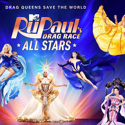
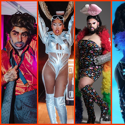
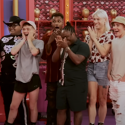


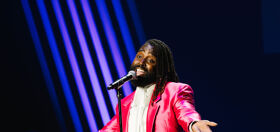

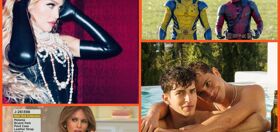



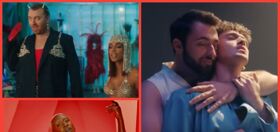


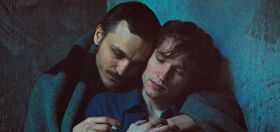
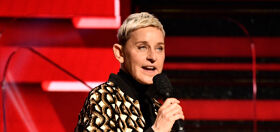

Paul Stanley
You have a lot of articles on drag queens – they’re a small subset
QJ201
LIVED for Barracuda back in those days. Drink, watch show, cruise guys, probably get picked up.
And more importantly. Drag is bringing crowds back into bars… because everyone get iLaid these days.
Miss Understood
@Paul Stanley: Your comment makes no sense. People are interested in drag, the audience is a HUGE “subset”. Everything isn’t for you. So what, just read something else. There’s nothing valid to complain about. What is it with whiney people and the internet?
He BGB
I noticed on RPDR they take themselves so seriously where in bars they don’t. So if u want to see relaxed queens in the wild go to a nightclub. If you want to see uptight queens, go to the zoo RPDR where they’re backed against the wall in a cage and will claw ur eyes out.